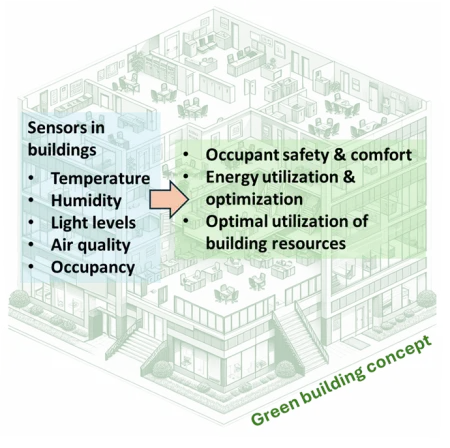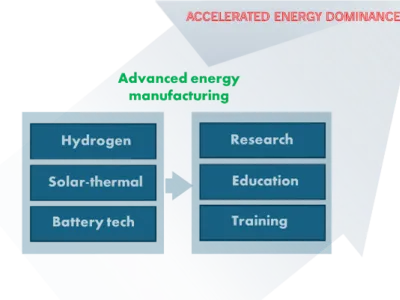Written by Naga Korivi, Associate Professor and Department Chair of Electrical Engineering and Renewable Energy Engineering

A student-led research project is gaining interest in the sustainable architecture community with the publication of a peer-reviewed paper exploring the vital role of sensors in the development and operation of green buildings. The paper was presented at the 12th Institute of Electrical and Electronics Engineers Conference on Technologies for Sustainability (SusTech 2025), in Santa Ana, CA., from April 20-23, and is set to appear in the proceedings of the conference.
The study, titled “Sensor Technology in Green Buildings,” highlights how sensor technologies are becoming indispensable in the drive toward environmentally responsible building practices. It offers a comprehensive look at how sensor technology can be leveraged to optimize green building design and functionality through an analysis of current and emerging technologies such as Internet-of-Things ecosystems. The study identifies key barriers to sensor integration in green buildings, including cost and interoperability challenges, and provides recommendations for future development.
Christine Nadiele, an Oregon Tech graduate of Renewable Energy Engineering, led the research. Dr. Naga Korivi, of the Electrical Engineering and Renewable Energy (EERE) Department, served as the faculty advisor for the project. The research was funded by Intel Corporation through a grant led by Korivi.
“Our plan with this research was to study how sensor technology can transform the way buildings interact with their occupants and the environment, with the goal of better sensor technology. I gained new skills while conducting this research and the overall experience has helped me professionally,” said Nadiele, who has graduated and is employed full-time in the green buildings industry.
“This work epitomizes a key aspect of our mission at the EERE Department, which is to provide our students with research and professional development opportunities. A greater goal of this research is to develop new semiconductor-based sensor technology to address emerging needs in this growing field,” said Korivi.
The findings come at a time when global interest in sustainable development is surging, and smart building technologies are becoming increasingly central to the built environment. The paper’s inclusion in SusTech 2025 places it among leading-edge research in the field and reflects the quality of EERE student research.
Queries related to this project can be directed to Dr. Naga Korivi at naga.korivi@oit.edu.
###









